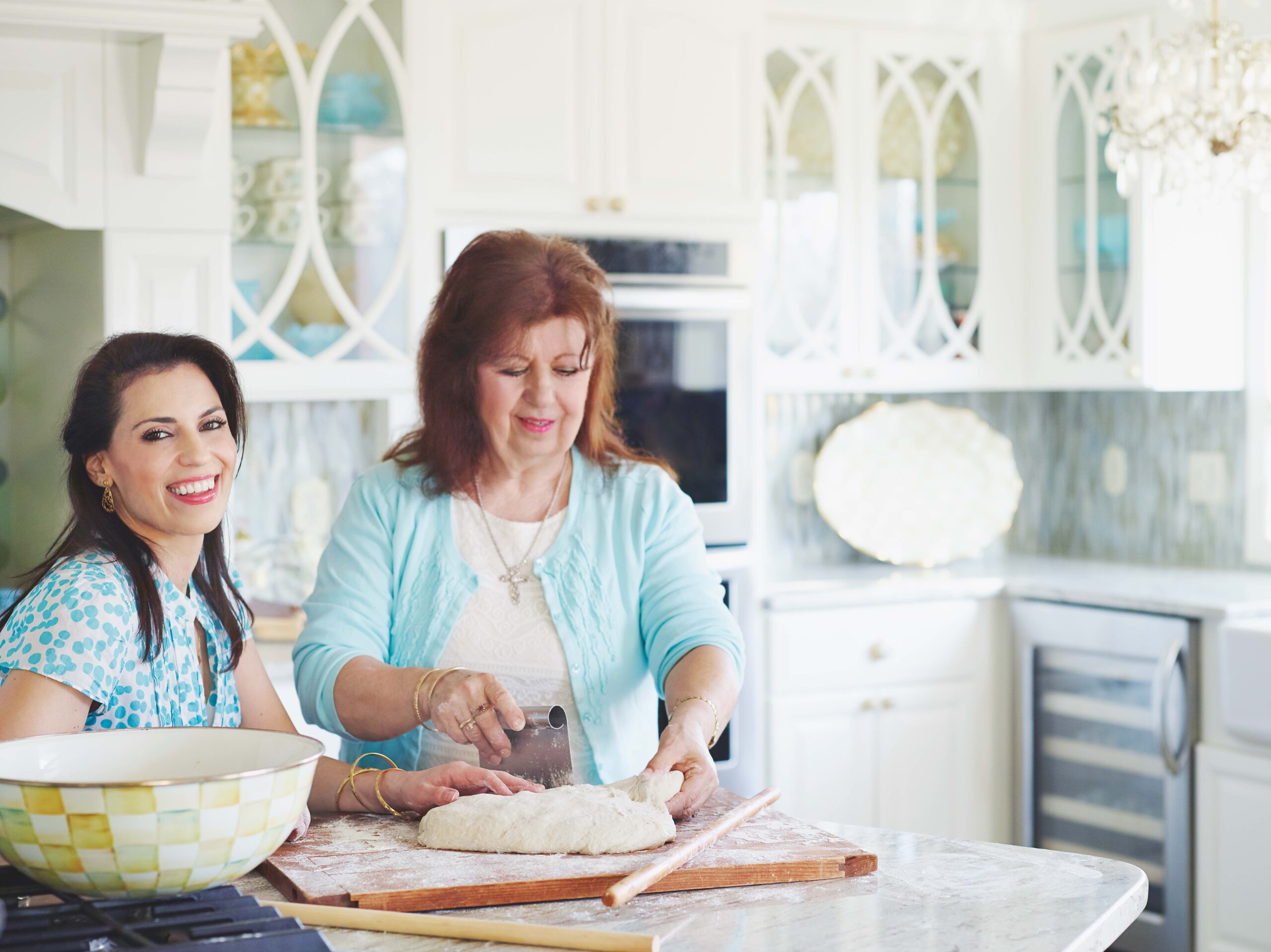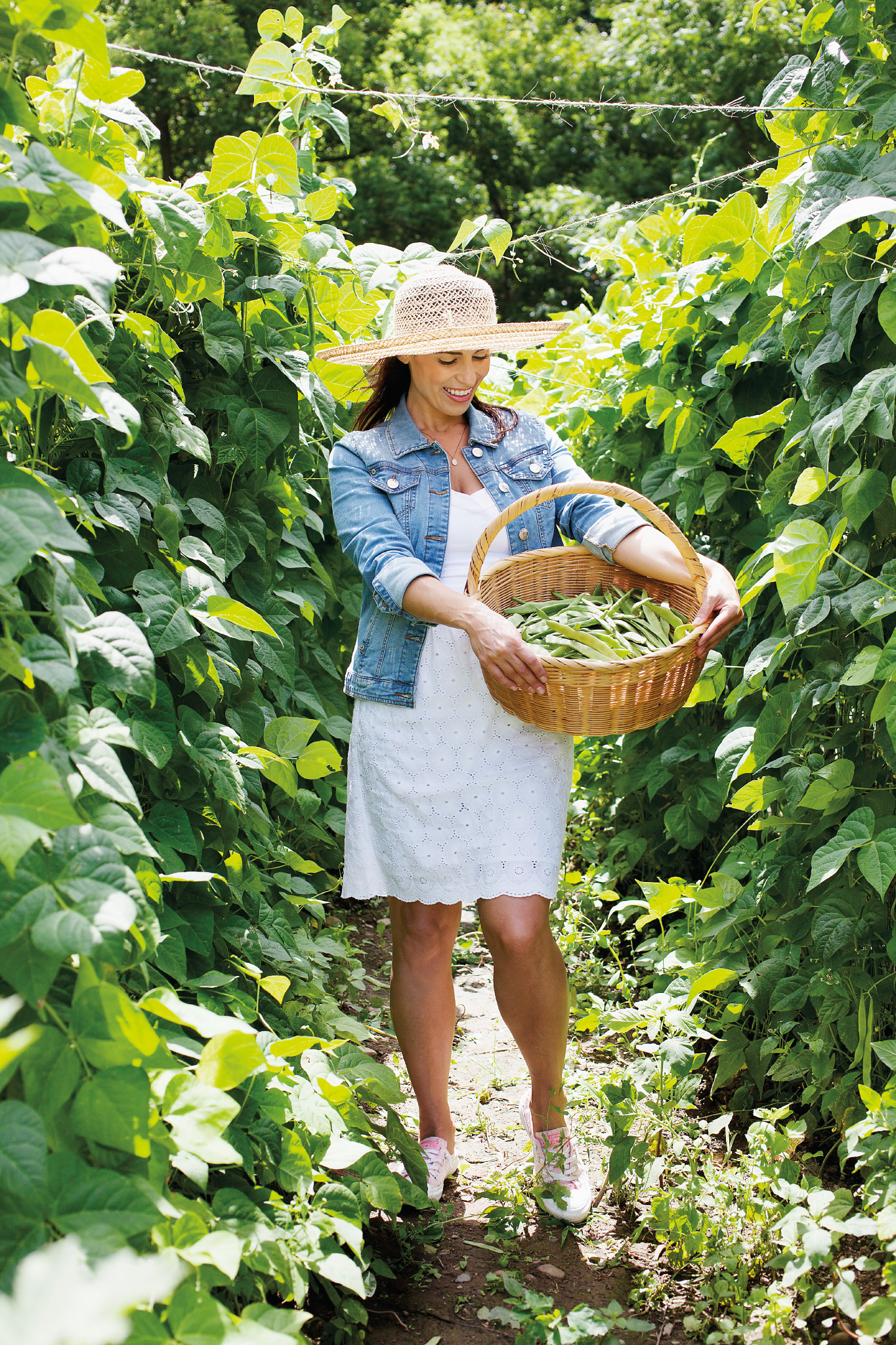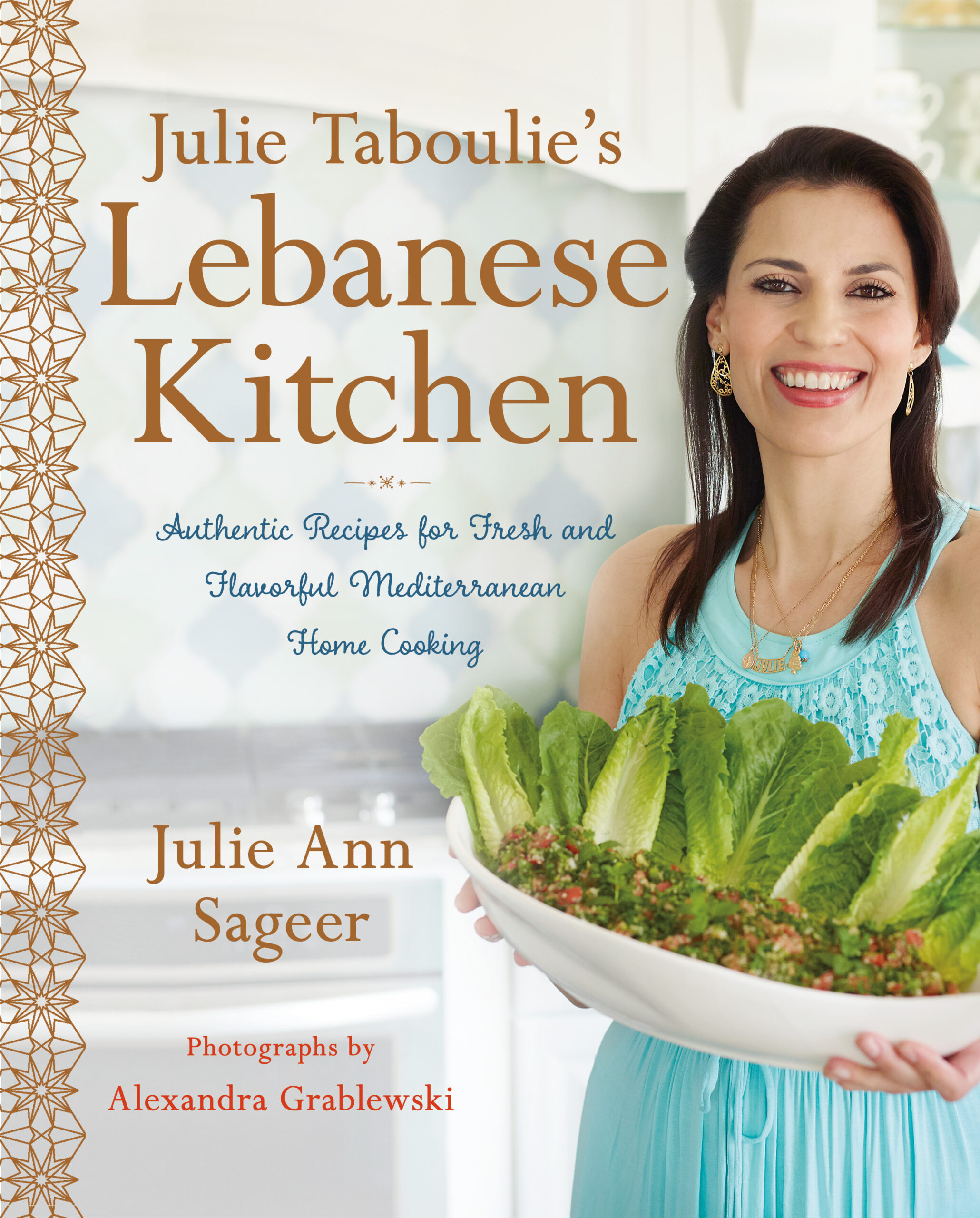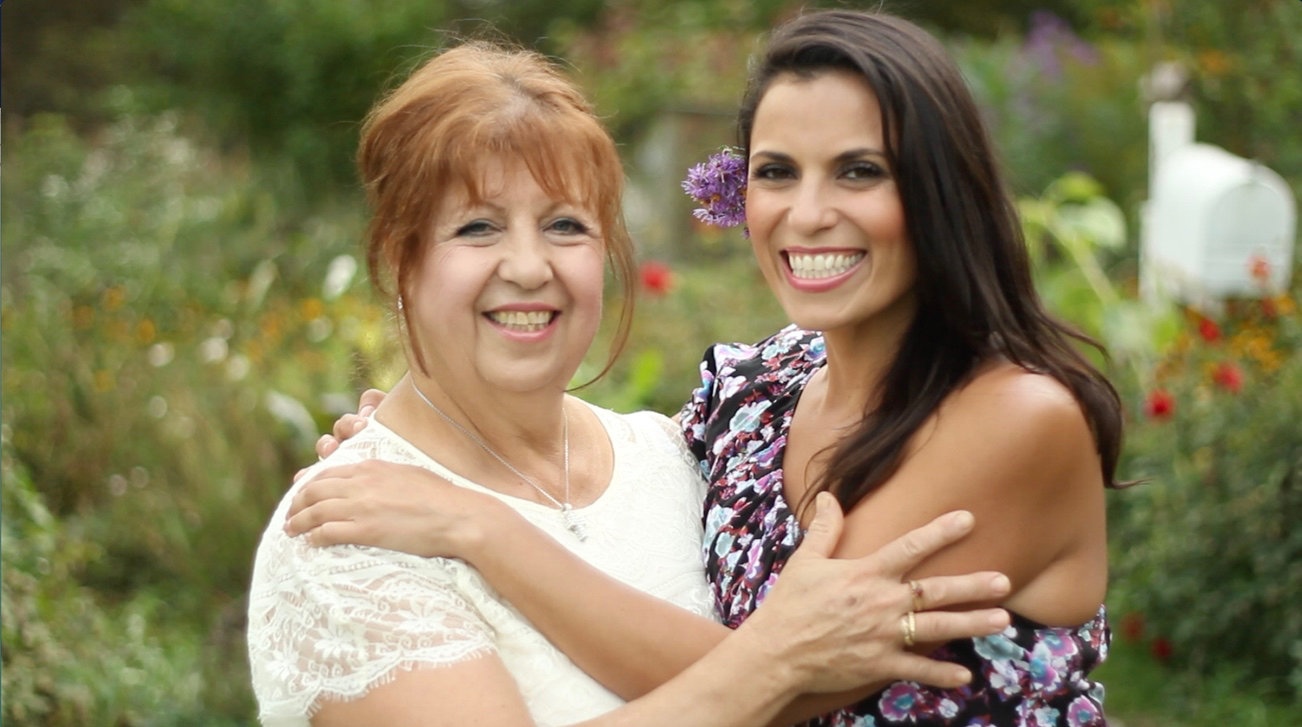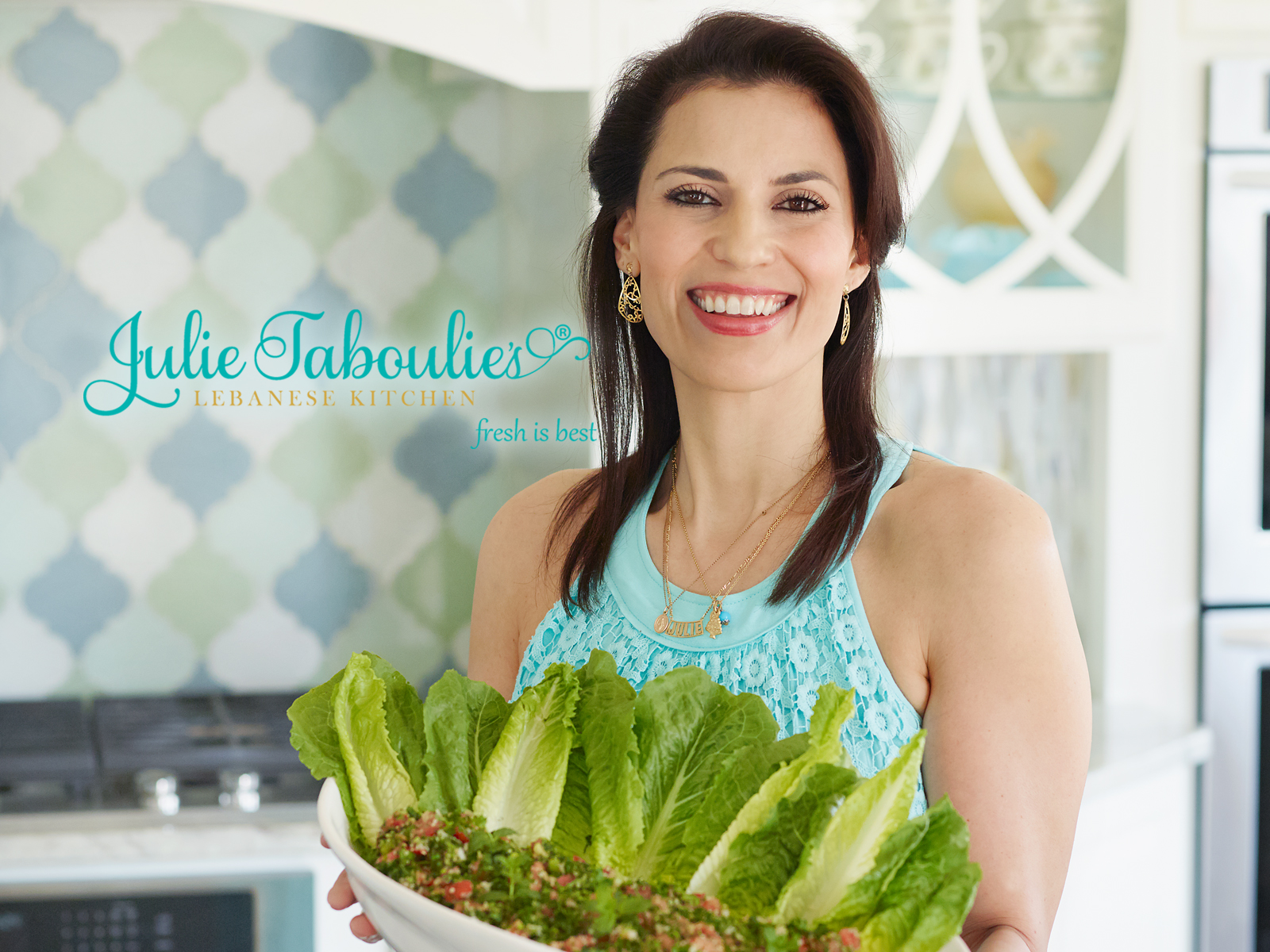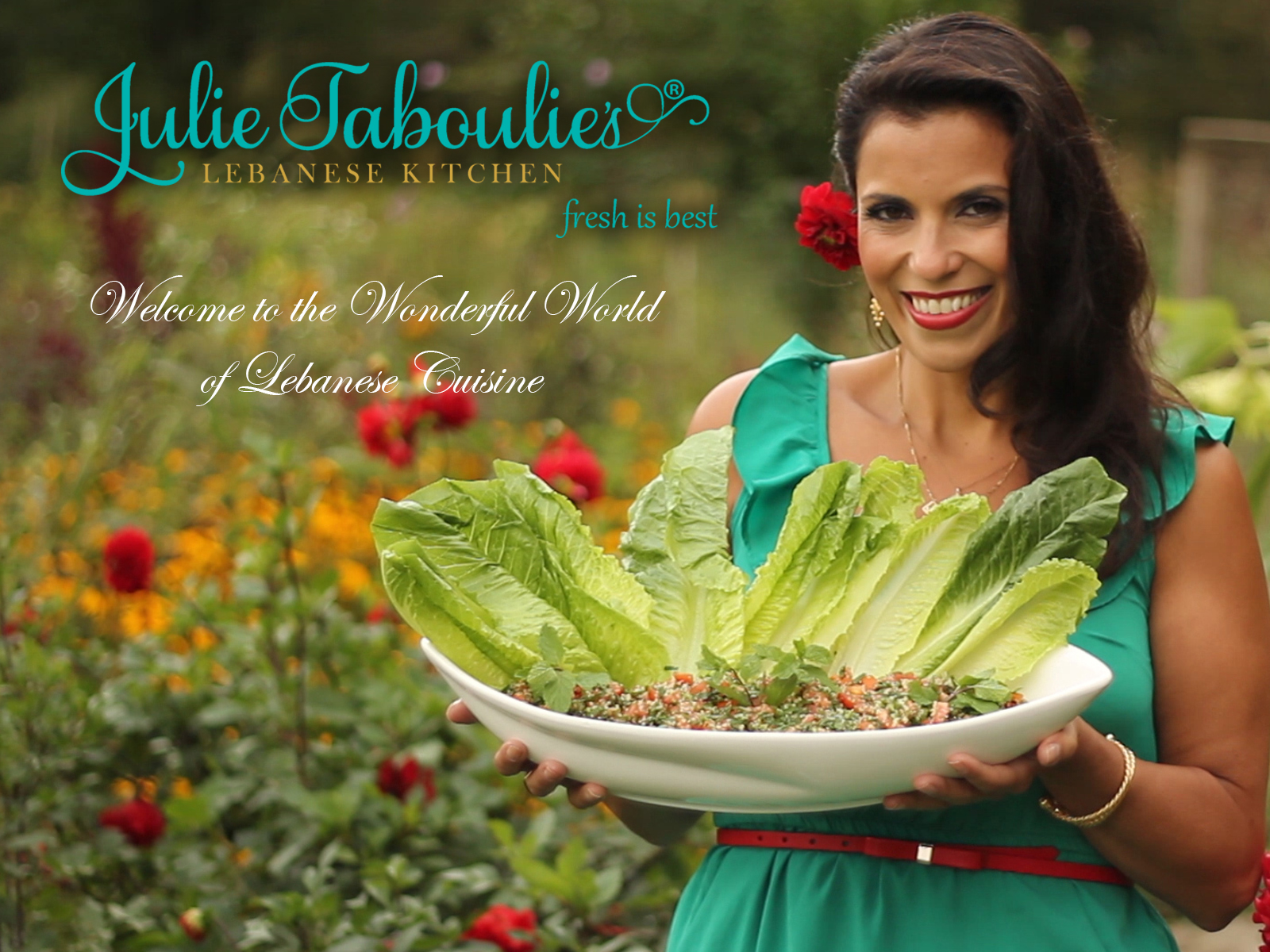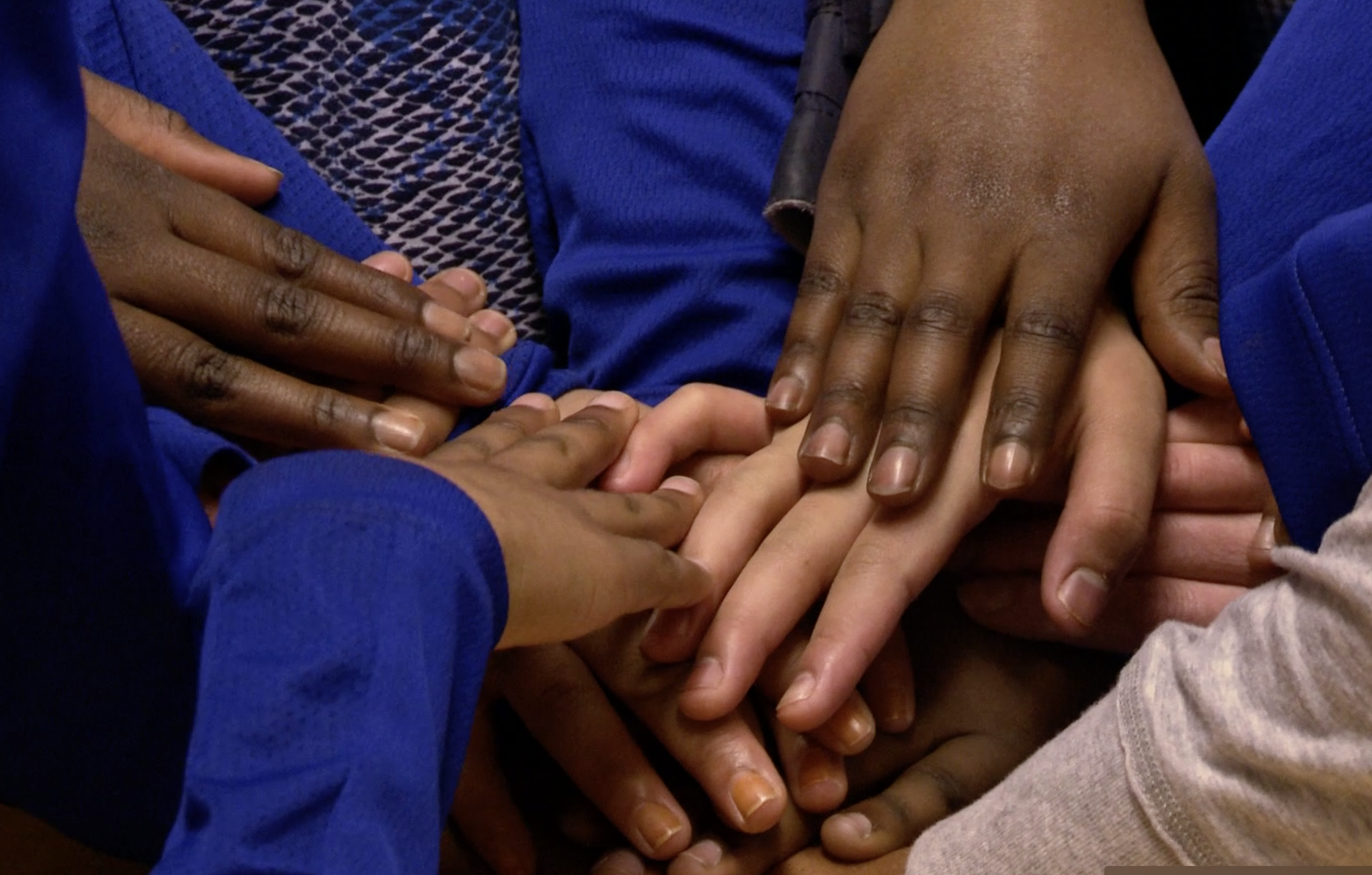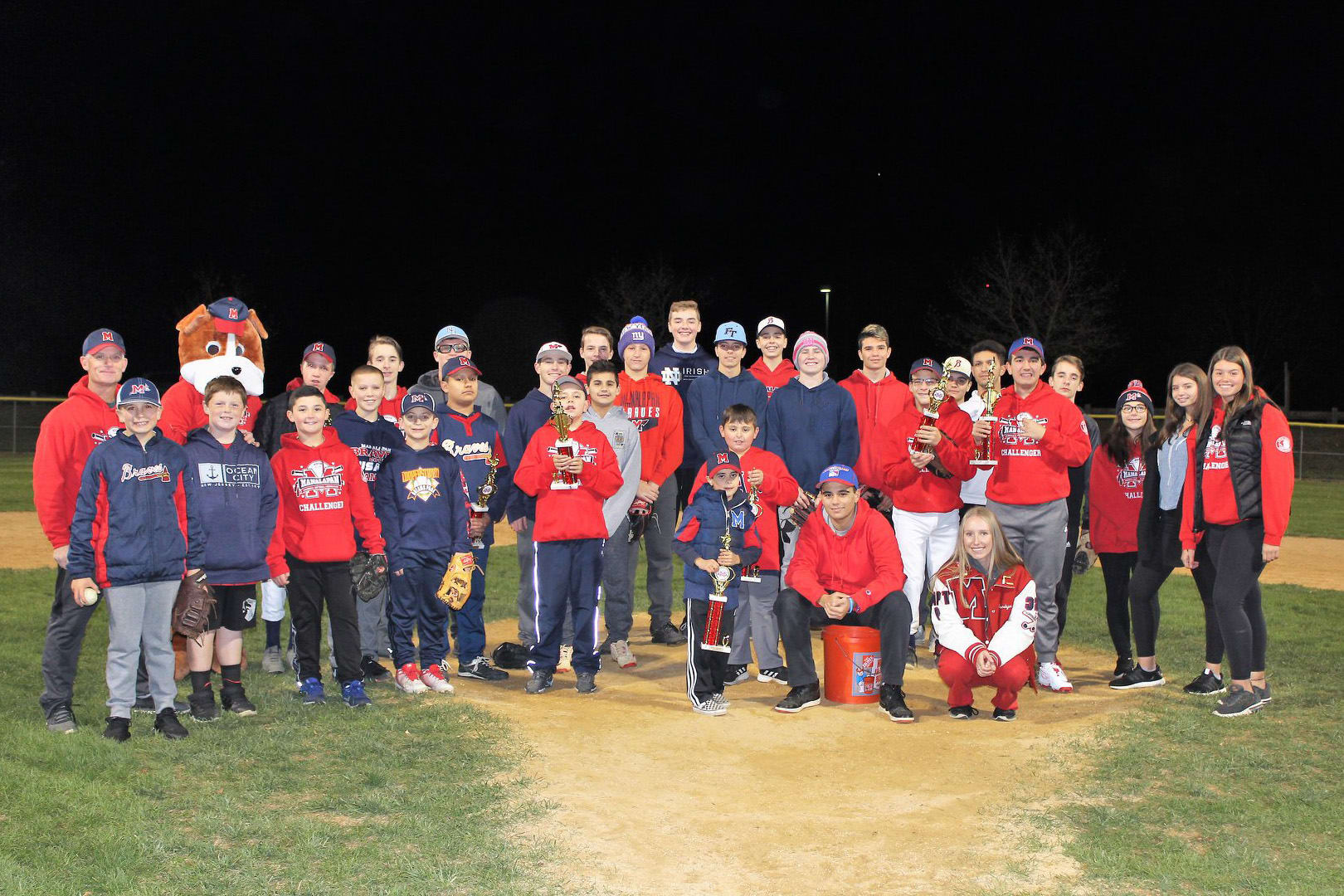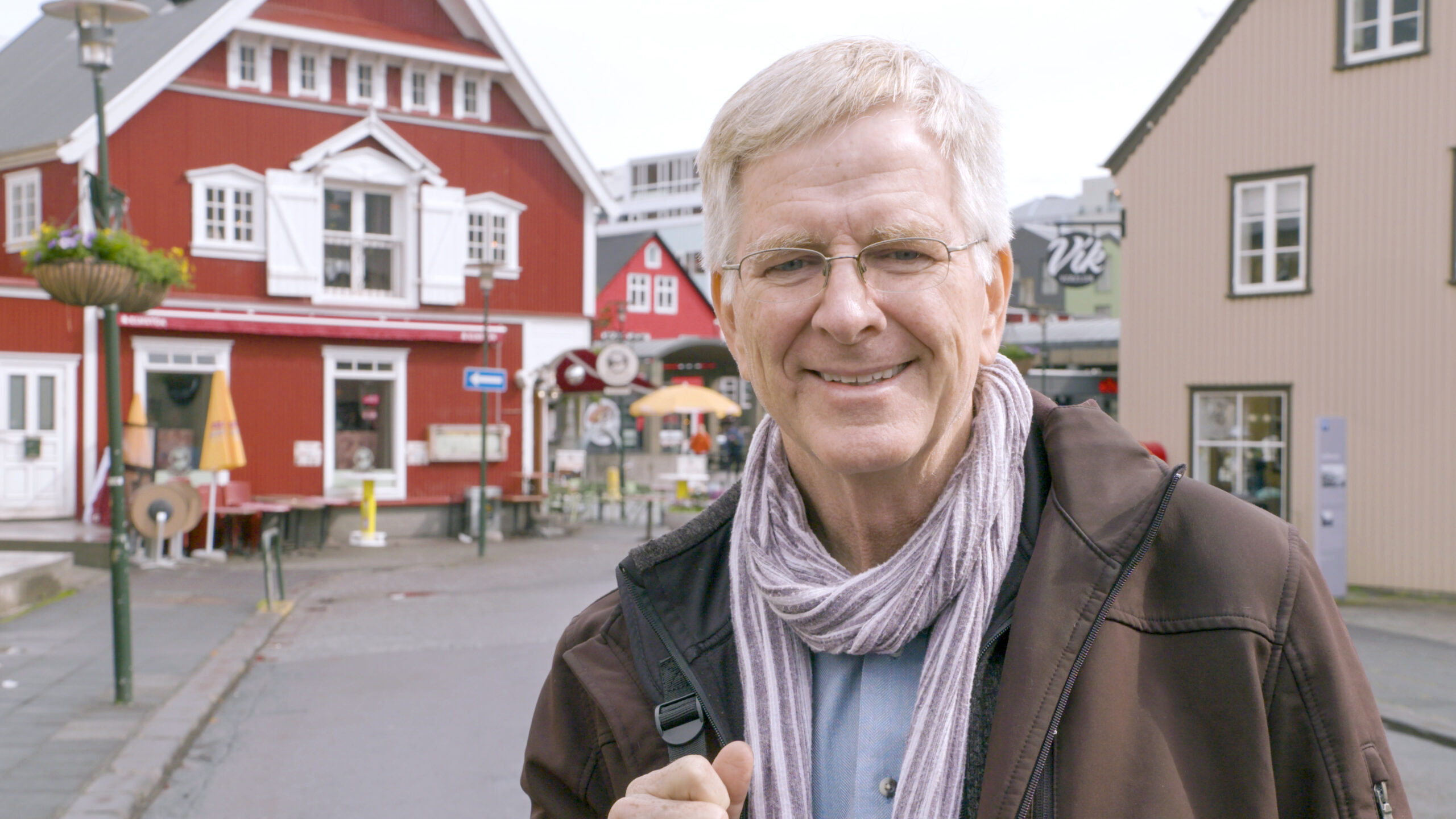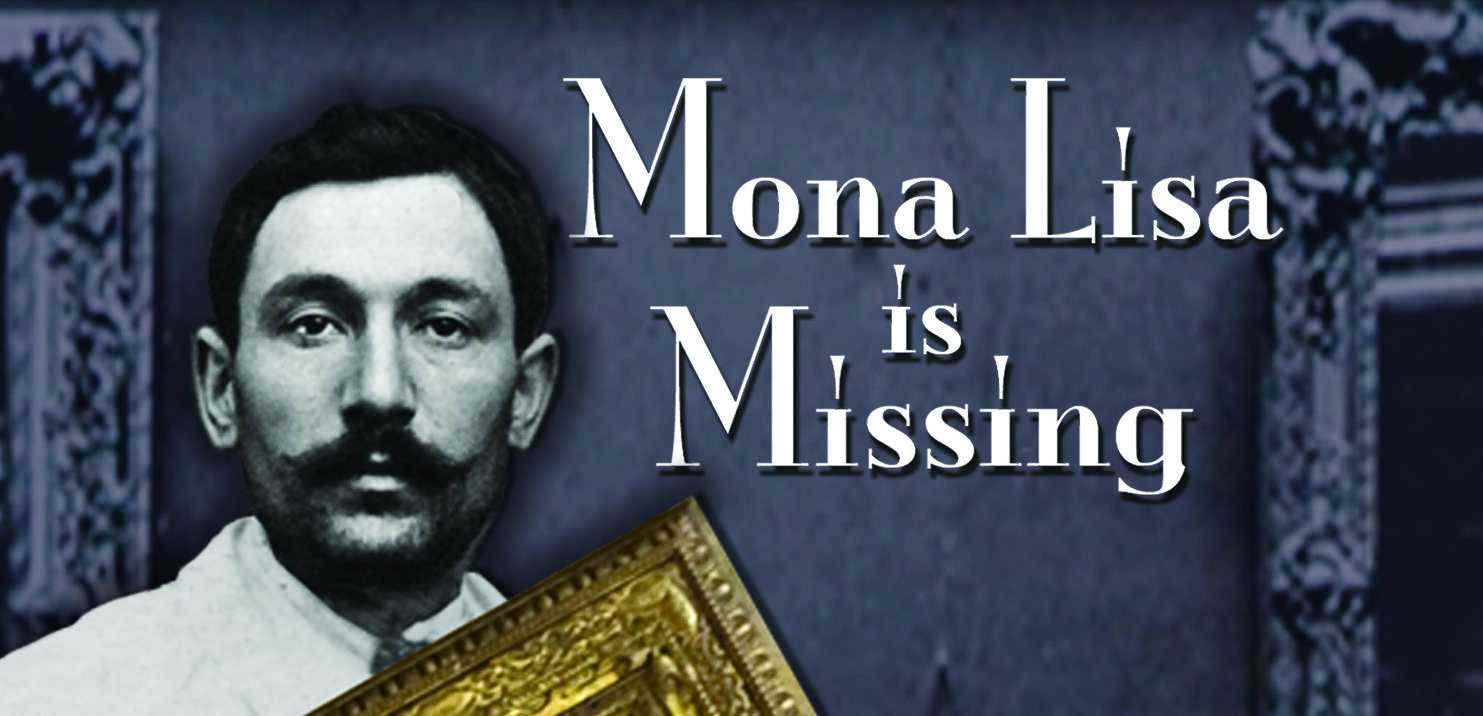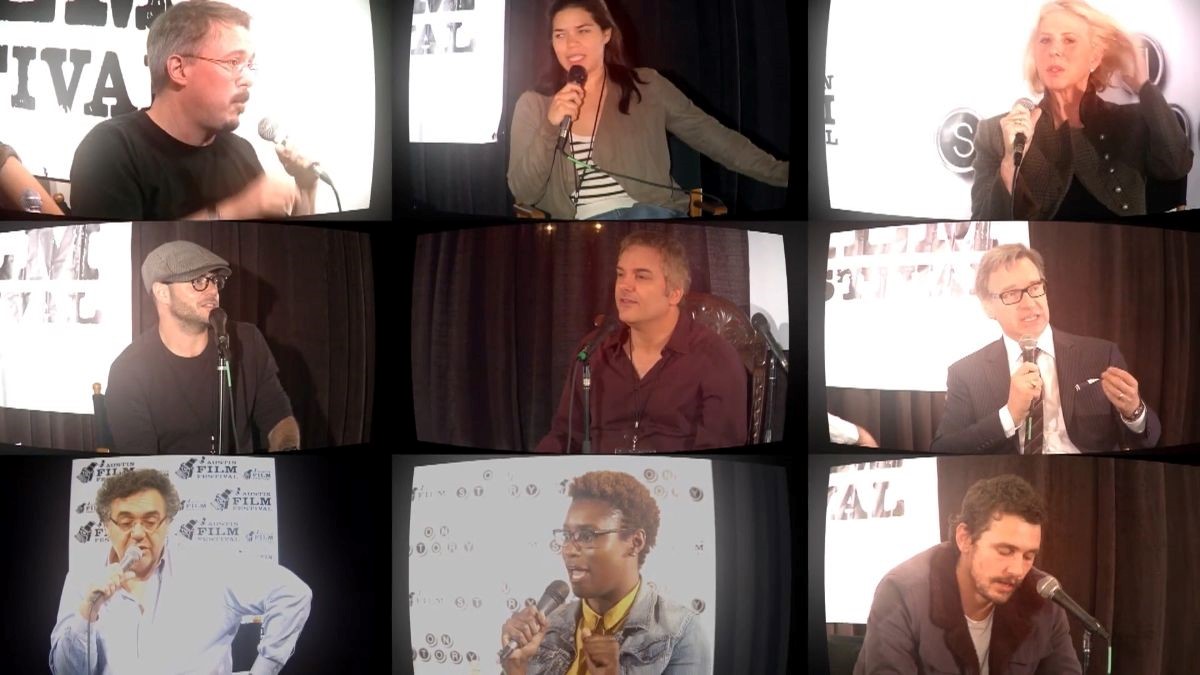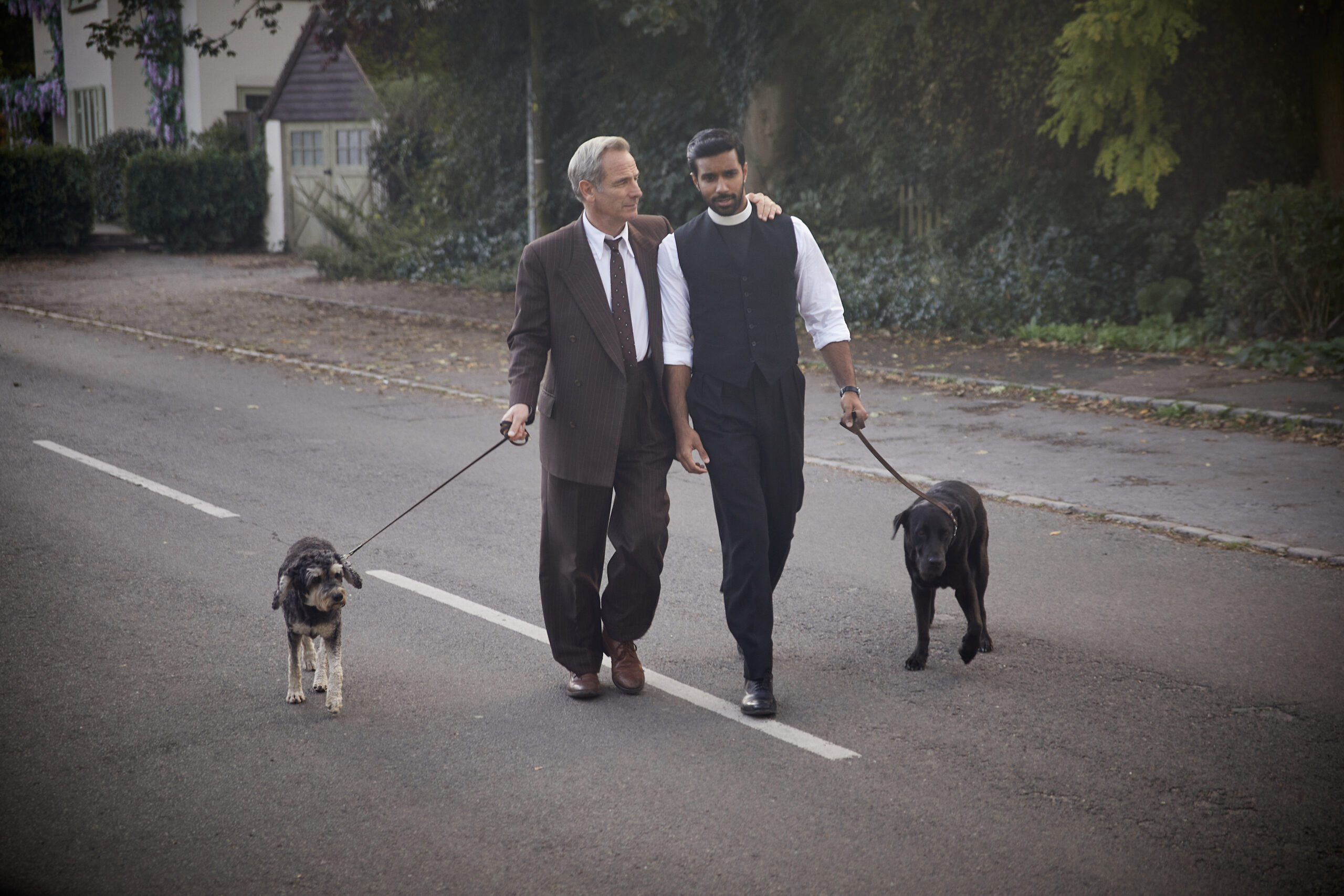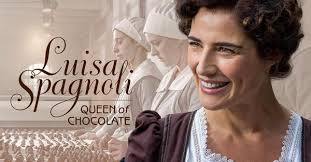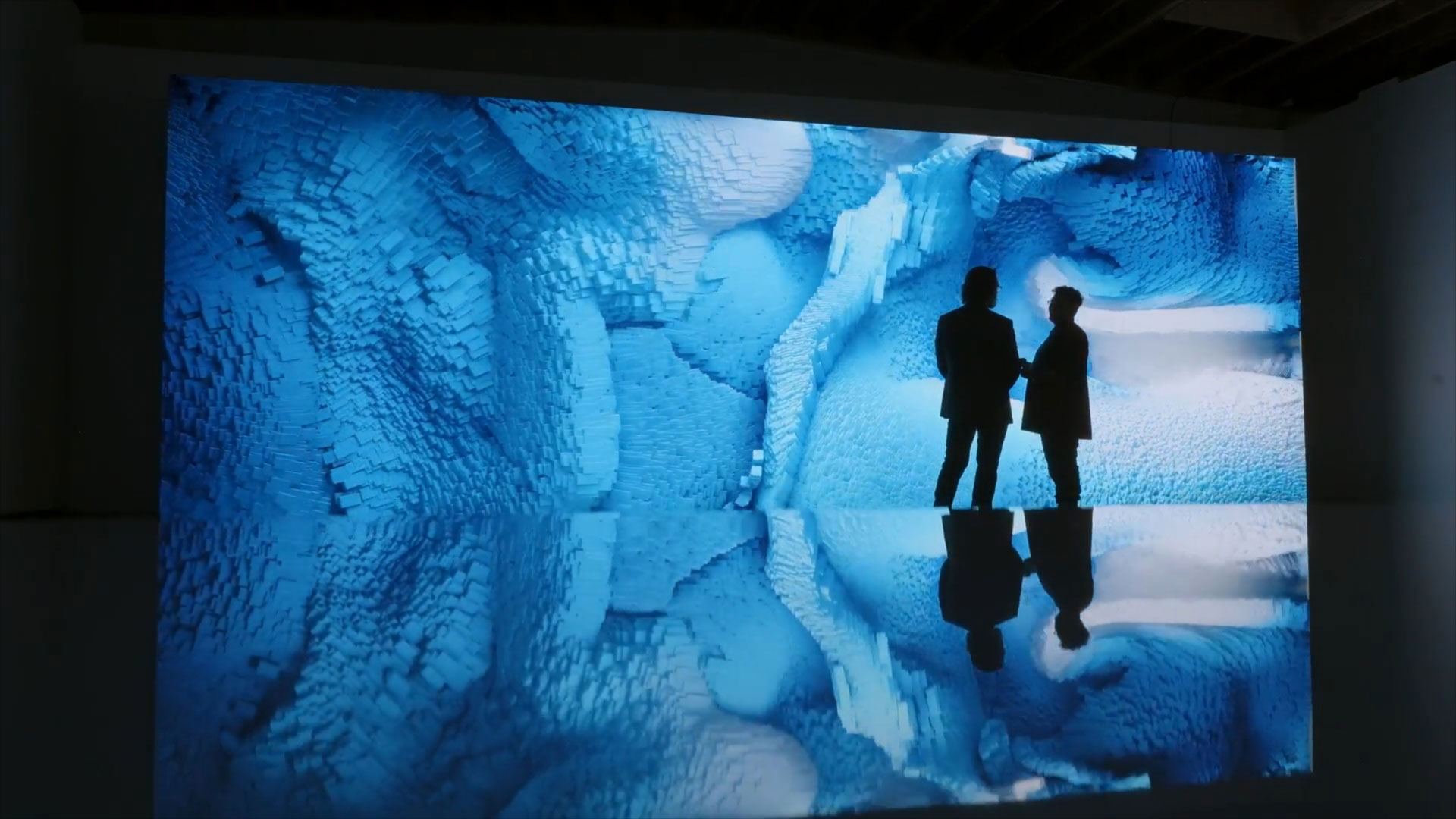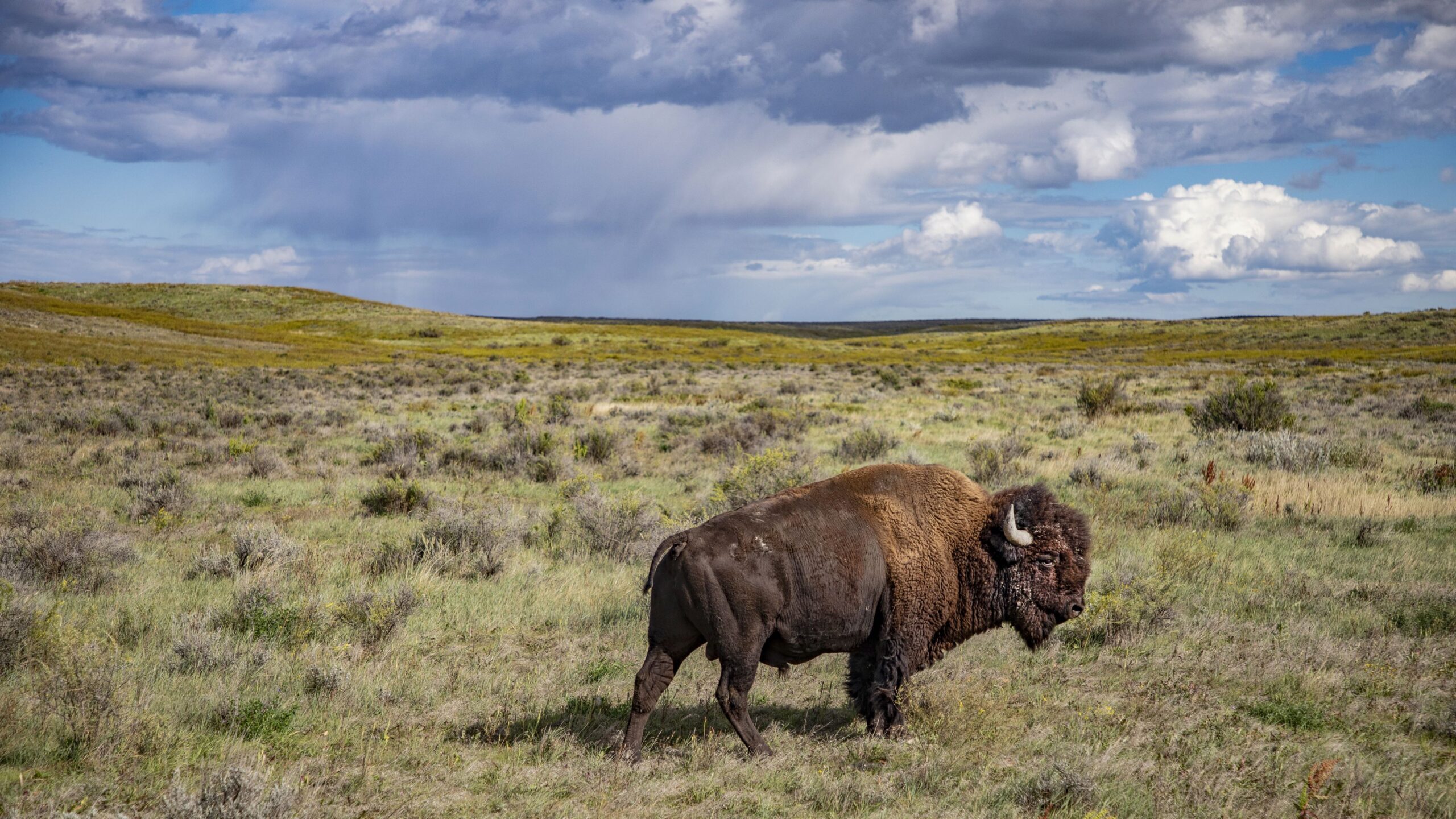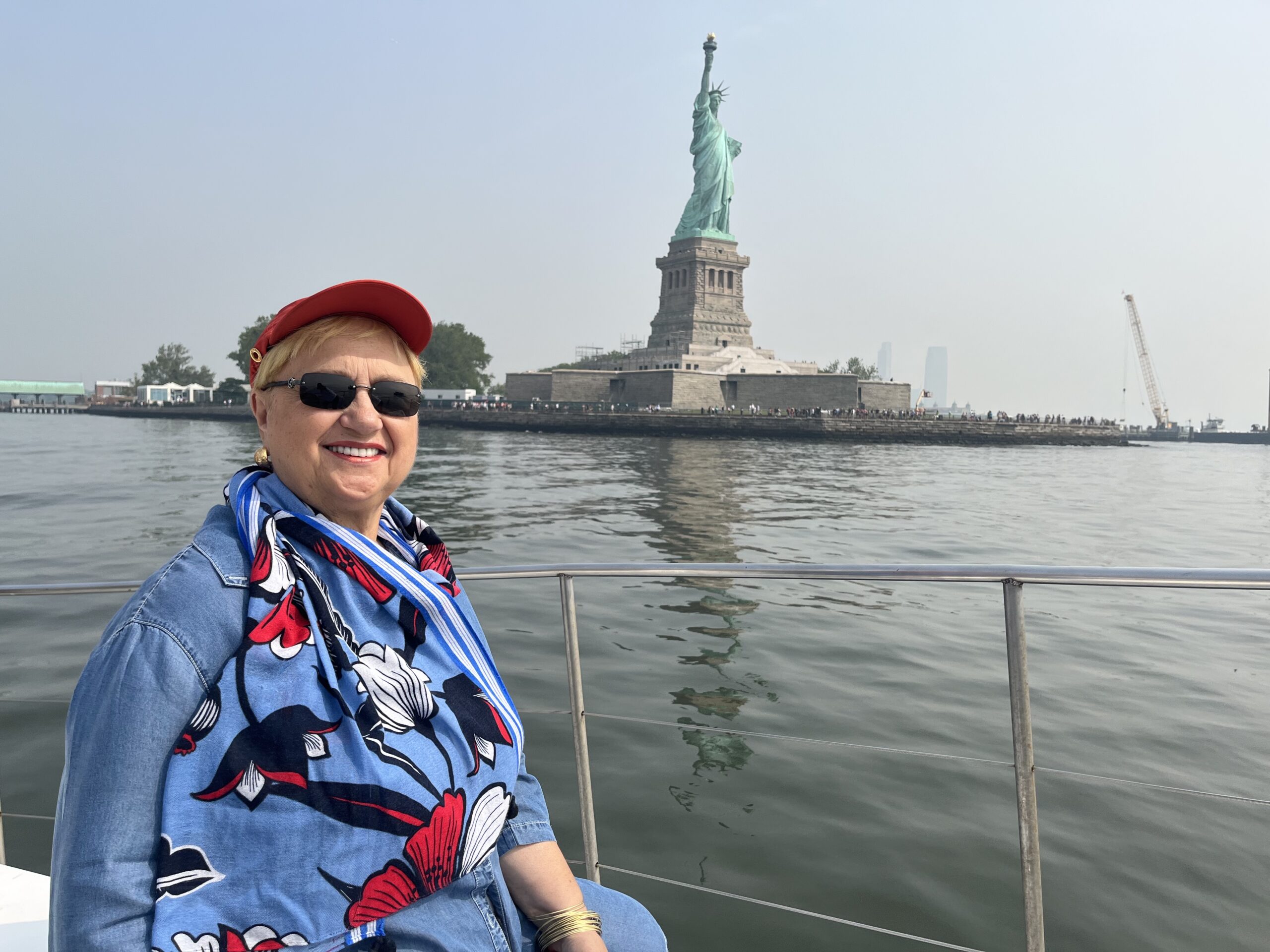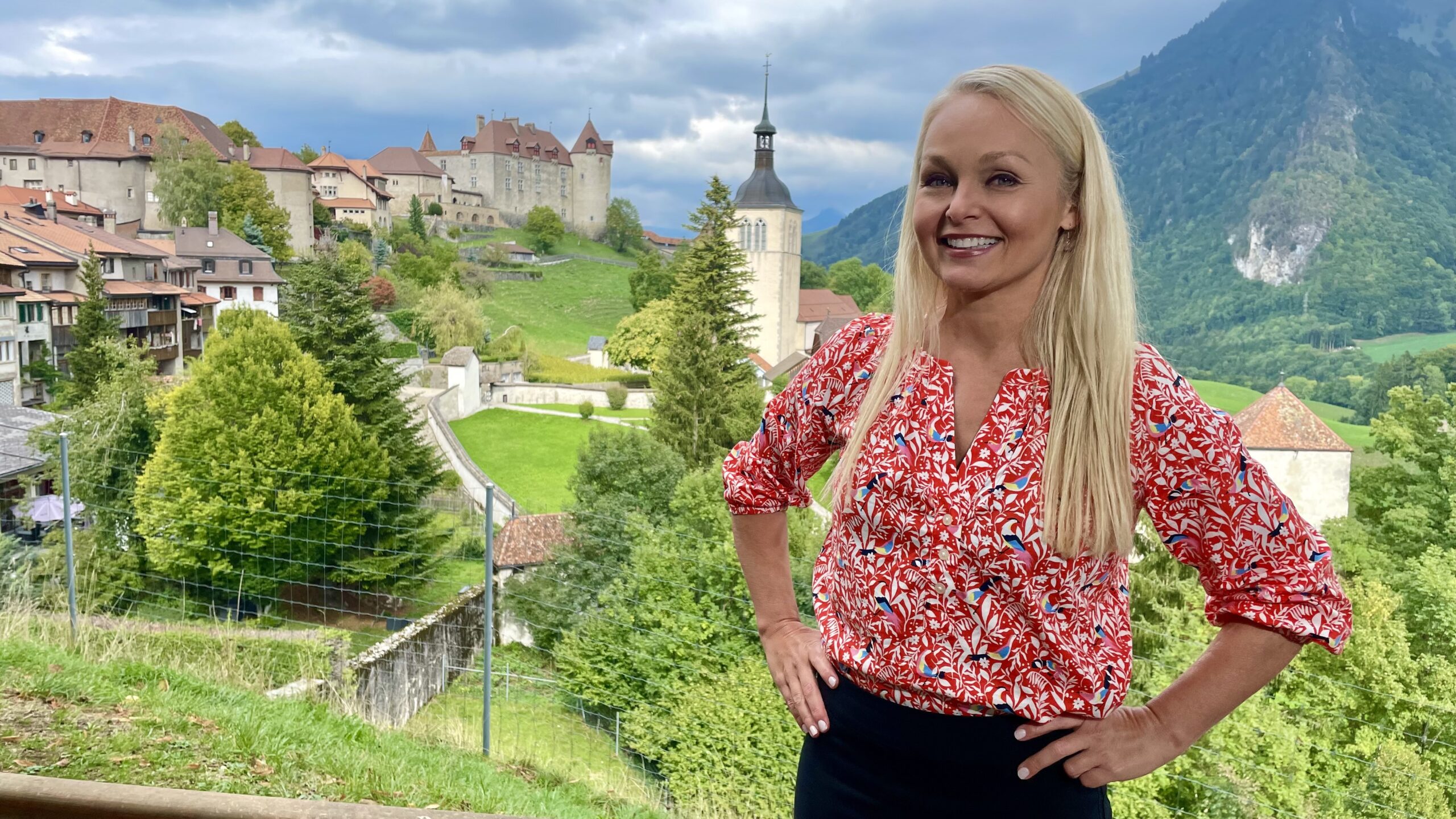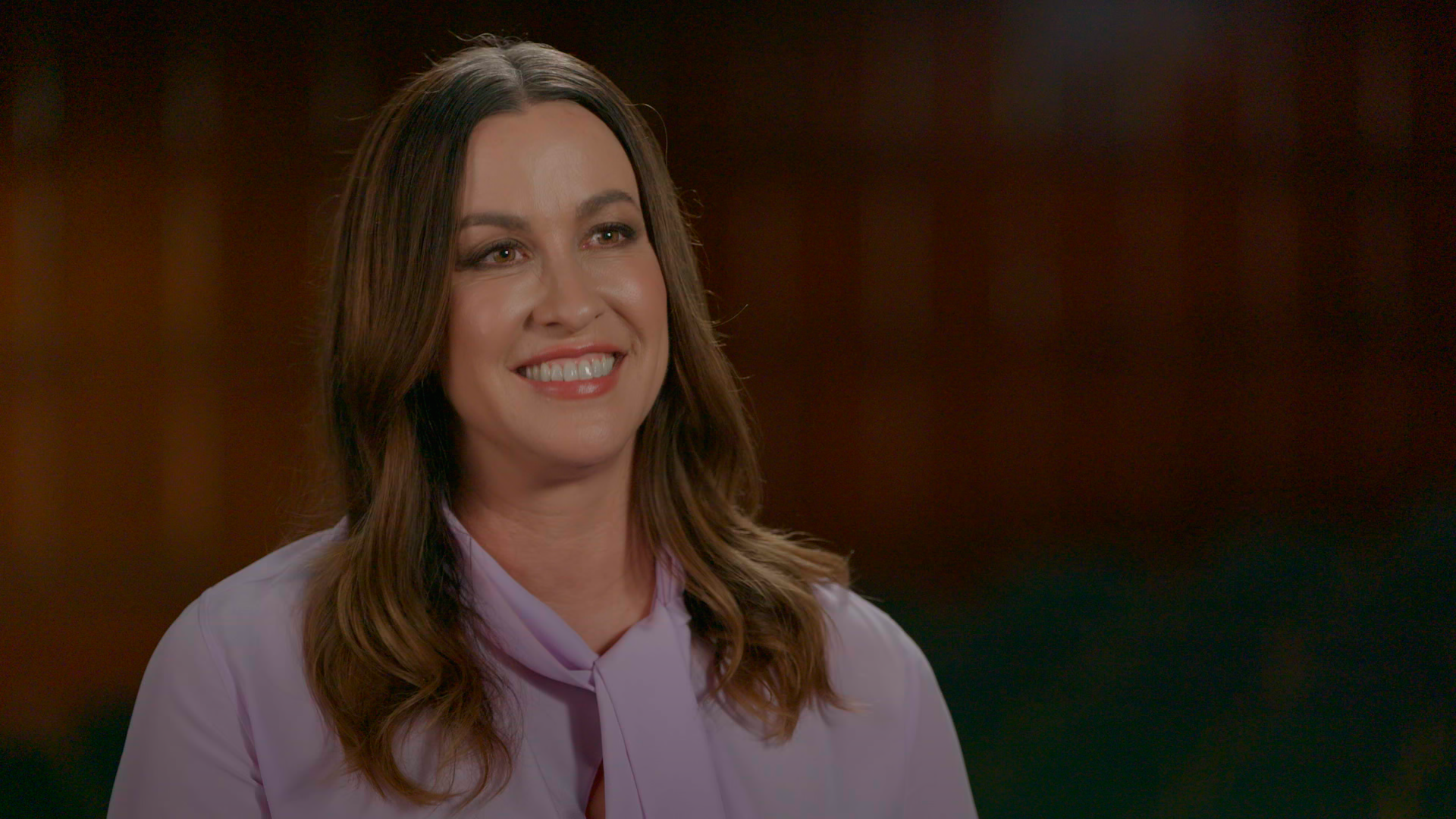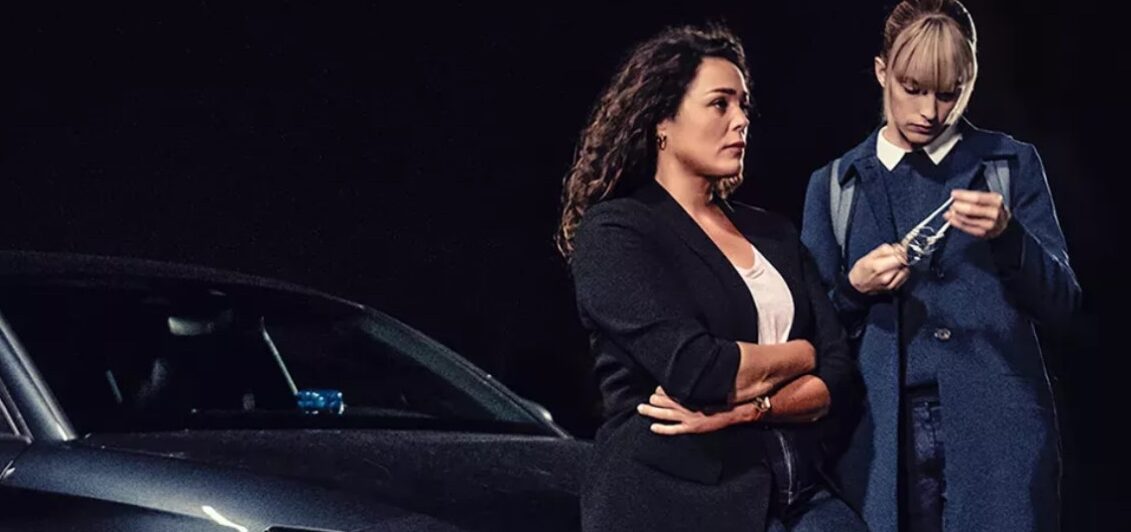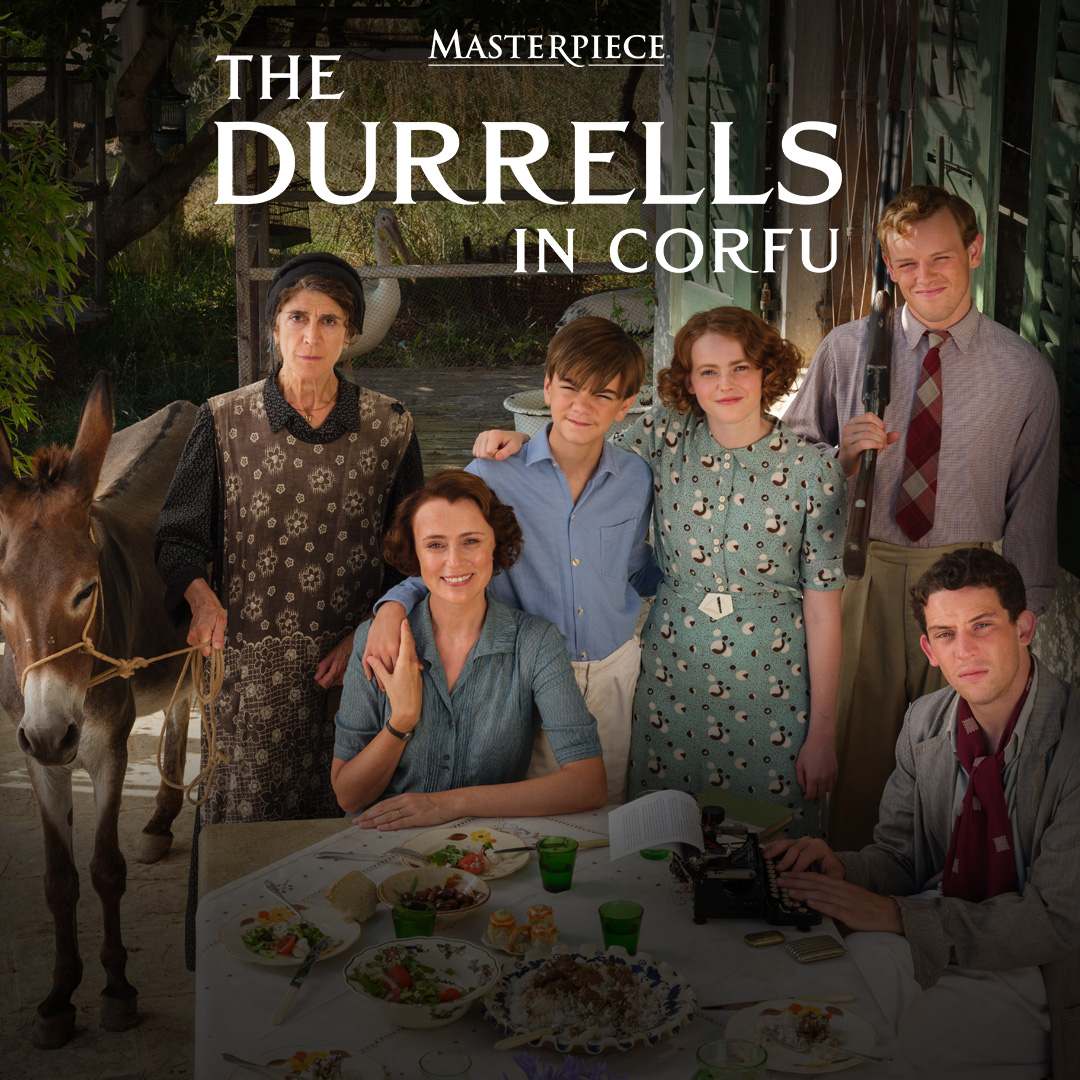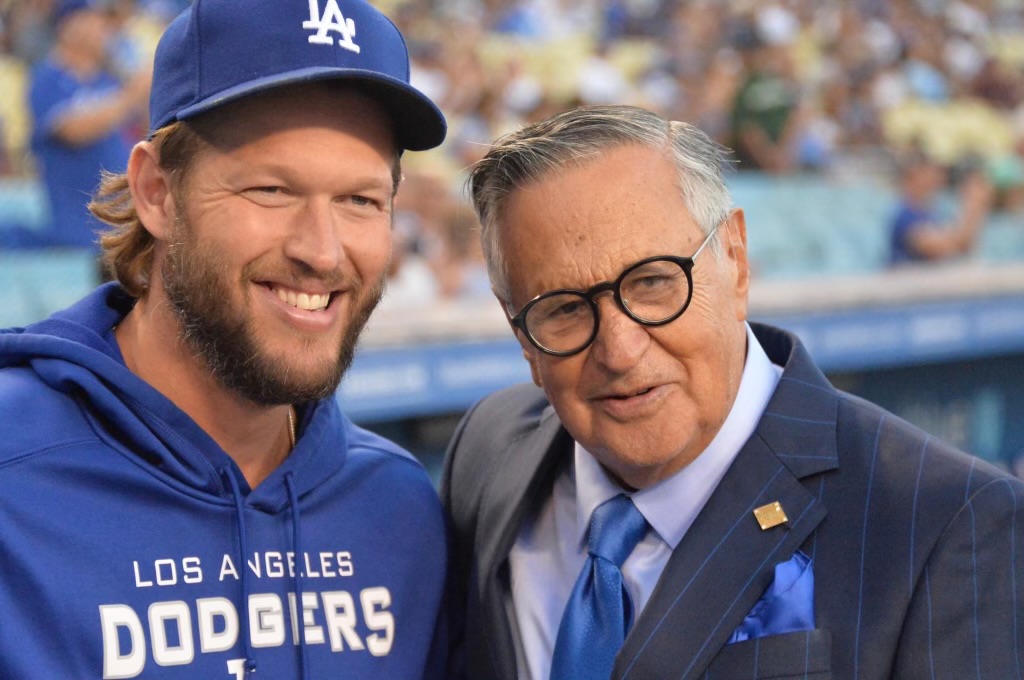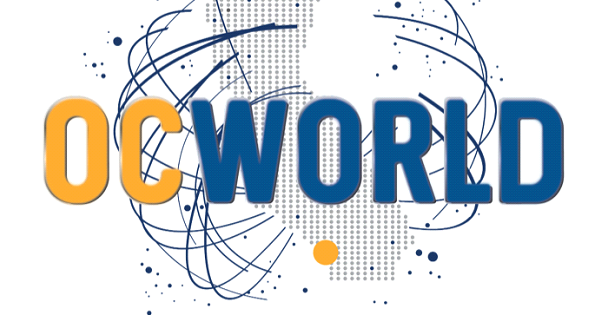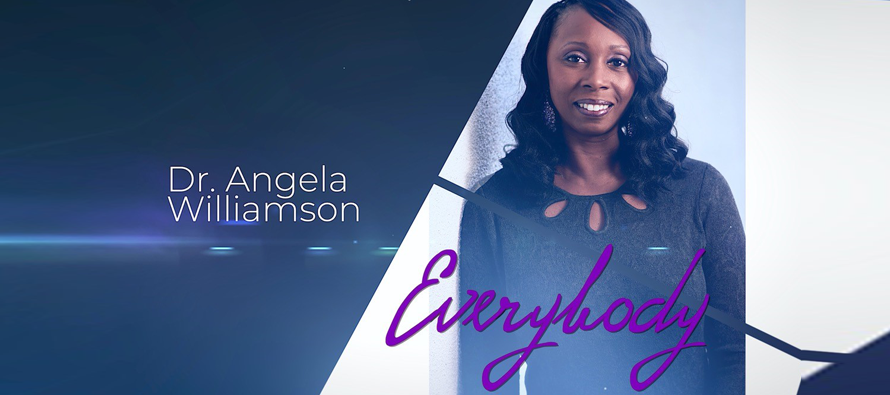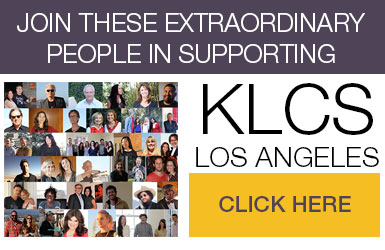Julie Taboulie has brought Lebanese cuisine to PBS viewers through her show “Julie Taboulie’s Lebanese Kitchen” on KLCS’ CreateTV, where she shares dishes that go deeper than just her namesake. She talks to KLCS about her about her path to PBS, how her mother Hinded became such a big part of her show, and what her typical day is like on her farmettte in upstate New York when she isn’t filming.
Julie, I love your chosen moniker, it let’s the viewer know exactly what kind of cuisine you’re presenting. What’s the theme or aim of your show?
The theme is introducing Americans to the wonderful world of Lebanese cuisine in all its glory. It’s introducing the cuisine, the culture, the customs, our hospitality, our graciousness, our generosity, the famous foods. Really my goal and my aim, and my passion and mission, was to bring a big taste of Lebanon to the audiences in America.
Do you ever worry about running out of dishes?
No, I get that question often and then I wonder why I get that question asked to me. I think that it’s because our culture is known for maybe a handful or two of really famous dishes and oftentimes they’ll not know a lot more about the culture and cuisine. But it’s a full breadth of dishes and different courses and there’s so much richness and fullness to the array of dishes that we have, just like any other cuisine. No, (laughs) there’s so many. In fact, more than half of them didn’t make it into my first cookbook, which is great for my second book. My first book proposal was like mastering the art of Lebanese cooking (laughs), so I cut more than half the recipes out. There’s so many beautiful recipes and part of my fun is introducing those recipes that are not as well known. I get excited to do that and even more excited when the viewers and readers of my book write in and say, “Wow, I really love the kharisah,” this famous chickpea, potato and bulgur wheat patty my grandmother would make for Good Friday. It’s one of the most delicious vegetarian patties that you’ll ever experience in your life. It’s exciting. What I feel is fulfilling too, is the viewers and readers and home cooks that love hummus, tabbouleh, falafel, schawarma, a lot of the most famous dishes and they get to taste all my lentil soups and stews and the chickpea patty and some of my fantastic egg dishes they just love and they’re excited to learn more and know more and make more at home for themselves and their families. So it’s really rewarding in that way.
What was your path to being on a cooking show on TV and what made you want to have a show on PBS?
My background is in television. I always knew instinctually, even as a young girl; I was mocking up myself, pretending that I had an audience and playing that out to myself at home or outside (laughs) and through out my childhood. We didn’t have in my high school, in upstate New York, a communication or TV program, but I knew that’s what I wanted to do, so I went to college in Long Island and as a freshman on campus I was hosting and writing and producing our campus television show and going out and doing my own segments on campus life stories. And later on, having a close proximity to New York, doing television internships and ultimately landed at NYC Media group working on a program that we covered everything including food. It was during that time that an opportunity came for me to go to Lebanon. I’m full-blooded first generation. I was born here and I had never been to Lebanon and my mother had gone back several times. I stayed for a month, Half of my family is in Lebanon. My mother’s four sisters and their children and my grandmother; so I got to stay with my grandmother and live in the house my grandfather built and sleep in the same room my mother slept in before she came to America as a teenager. And I met my aunts and my cousins for the first time and immediately fell in love with Lebanon and I feel Lebanon fell right back in love with me. Going as a Lebanese young woman and really living Lebanese there, coming back was very bittersweet knowing that my grandmother and the rest of my family was there. I don’t know what happened, but I describe it as an epiphany. I was sitting there looking out at the water, thinking of all of them. I lived near the Long Island Sound and looking out at the water just as I was looking out at the Mediterranean Sea and it was an epiphany. “Julie Taboulie” I wrote down in my notebook, that was my childhood nickname, “Lebanese cuisine.” It was like, “You’re going to represent your culture and cuisine in America.” I felt like they had no representative. I felt like these wonderful gracious, generous people everywhere I went in Lebanon, greeting me with smiles, “Julie, how do you find Lebanon? Sit! Have some tea, have some coffee!” This was 2007. This was well before hummus and yogurt, za’atar, sumac spice, bulgur wheat things that are now mainstream. So I called my mother and said, “I’m going to leave New York and I’m going to come home and I want to teach people to make Lebanese food. I need you to teach me everything you know.” She was like a master chef to me. Growing up I was surrounded by beautiful, delicious, abundant meals. So I knew she needed to teach me the real way and right way so I could teach others. I moved back home, in the Finger Lakes region of upstate New York., I was home Christmas 2008 and working on what that would look like “Julie Taboulie Lebanese Cuisine” and immediately started having my mother break down all the dishes. We started in the kitchen, one by one, recipe by recipe. Obviously Lebanese, similar to many cultures, nobody measures anything (laughs). Watching her hands, my mother’s hands are very fast. There’s a lot of secrets in the handwork and if you don’t watch the hands you can lose a lot of tips and tricks, because so many of our dishes are made with intricate handwork. I enrolled into my mother’s culinary school. I watched her very closely until I felt I had enough under my belt to begin with and then I launched a hands-on in person cooking class series at our local library, a very small town, which led to me teaching as a culinary instructor for a couple of years before I felt I could go back on TV, but now as Julie Taboulie.
Did you face any challenges in getting into markets that may not be familiar with Mediterranean cuisine, unlike L.A. and other big cities?
The first market I started in was the little town of Marcellus in the Finger Lakes, where I started teaching. It wasn’t challenging in the sense of the community support was outpouring. I had a core of cooking students, many were retired teachers, the majority older women. They were extremely supportive, encouraging and hungry to learn about Lebanese cuisine and culture. Challenging in the sense that there was a lot of misconceptions to our food, still to this day even in terms of people not knowing too much about it and me having to clarify where Lebanon is. We’re along the Mediterranean and we’re very influence by the sea, we’re not landlocked in the desert, it’s primarily plant-based. There’s a lot of educating about the country itself and how the country influenced the seasonality of our cooking and the freshness of our cooking. Many believe it’s spicy. They would get it confused with Indian or Moroccan. So I had to educate a lot about that, demystify a lot of things, a lot of dishes and ingredients we use. In person I went all through out New York state doing hands on cooking classes, live culinary demonstrations, live cooking shows and different types of special events. I found that somebody always knew somebody Lebanese, like, “This wonderful girl I worked with was Lebanese and they would share this dish with us and they were so warm and welcoming!” So I knew Americans loved Lebanese people and our culture and the food they did have and I feel that opened the door for my show being on all these various markets besides the major markets. There’s more Lebanese here, we have millions of Lebanese Americans here. I feel that was very supportive in the non-major markets with my program.
Your mom features prominently in your show and you credit her with this food you grew up with. How did she become such a fixture on the show? Is it because it all started from her?
I’m very close with my mother, we have a close mother-daughter relationship and close bond and she is just a wealth of knowledge and my number one source of information and my number one source of inspiration. So I go to her first when I’m developing recipes or when I want to introduce new recipes. I’m constantly picking her brain (laughs) about recipes and oftentimes about her remembrances of her mother of what she does remember because she did come to America as a teenager. So it really all starts with her and that really drives me and drives the way in which I approach the recipe and the way I research and develop it starts with my mother. And then of course she has our massive garden, her beautiful glorious garden and that is where I source all the ingredients from. So she is an integral part of me, of the show, the book, of really everything that I do, but it happens in a very organic, authentic way. As I was developing everything as a creator and writer and executive producer of my show, it was of course, “This is how I cook.” Having lost my father at an early age, I was five or six. I’m the youngest of four, my mom raised us on her own. Thank God for her brother my uncle Dominick; they came to America together, he’s the one that gave me the nickname “Julie Taboulie.” He became our guardian and helped to raise us with her as well, so that attributes my closeness with her. Years later my mom did remarry a wonderful stepfather that I have who’s German and Dutch and they’ll be married almost 32 years. She’s obviously a huge influence in my life and I wanted to share that. I wanted to share her, I feel like she’s such a gift. I’m sure many people feel that way about their own mother and hopefully think that way. So I wanted to share her with my viewers and readers and home cooks.
What’s the most asked question you get?
“Is Julie Taboulie your real name?” I say, “It’s not my real last name but it might as well be because it was my childhood nickname since I was a little girl and how my entire family has been calling me Julie Taboulie since I was little and when I was developing this idea of bringing Lebanese cuisine to American audiences, it was like a no-brainer because it said everything in the name. And it came from a real place, I’ve been called that my entire life.” Even my family calls me it still, “Where’s Taboulie, is Taboulie here yet?” It’s basically been my other name my entire life.
Do you have a favorite dish to cook a quick go to dish that’s healthy?
My namesake – tabbouleh. I pretty much make that at least once a week.
What’s a typical day like when you’re not filming for TV?
Where I live in the Finger Lakes, it’s on a farmette, it’s about eight acres. There’s a lot to do. We’ve got the garden, there’s chickens, we have goats now, so there’s a lot that I do just here out in the garden. I’ve always made my own yogurt, but we have so much goat milk now, so I’m doing a lot of cheese recipes with the goat milk. I’m always being inspired by the surroundings here and coming up with new recipes, trying new things. The garden is a huge part of way I cook and the show and in the first book, but it’s going to be hopefully an even bigger part of my next book. So I’ve been documenting the garden a lot more with the growth and really how it comes to be. How we go from the seeds to the plant and transplanting them into the garden and the harvest. I’ve been doing a lot more research about what we grow in the garden and hopefully I’ll be able to put as much as I can in the next book. I get asked a lot about that, a lot of what we grow in the garden and how that inspires my cooking, based on the season.
What’s the favorite part of your job?
There’s so many, but the happiness I bring to others. Like the people who write in about the book. The happiness and inspiration that I bring them. The stories they share with me, like a particular episode, or a dish, the way I described something made them think of their own grandmother or their mother or bringing back beautiful childhood memories for them. I think ultimately what touches my heart is the fact that I’m touching other people’s lives in a really kind way and I’m bringing goodness to them. So that’s what makes me feel the best, it’s that good feeling I have afterwards, is knowing that somehow I helped their lives or I touched their lives. Or they’ll write in and say, “My grandmother who’s 90 years old never thought she’d see a Lebanese girl cooking on TV!” or never in their life did they imagine seeing someone like me, of their same culture making this famous lentil stew we have. Mothers that write in and say their little daughters love me and they say, “Oh my God she looks like me.” I feel like that’s really influencing them in a way I didn’t think of when I began all of this. So that makes me feel happy to know that I’m touching these people’s lives in that way.
Everyone’s had a Julia Child story or that she’s influenced them. Do you have Julia Child story?
Oh my gosh, I love Julia, I feel like she’s with me often (laughs). I remember as a young girl, I remember my mom having her on. I remember hearing her, her voice, her laughter and her quintessential Julia coming through. So I have a remembrance of that and then when I started teaching the Lebanese cooking classes in Marcellus. As I said, many of my students were retired teachers and they would always say of how I reminded them of Julia. I don’t know if it was the way I presented everything, my energy, my personality. When I started getting on TV, they wanted to see me on PBS and they started to talk about Julia. So one of them gave me her copy of “Mastering the Art of French Cooking” and a copy of the DVD of her series on loan. It was very sweet and kind of this woman. It was perfect timing, because at this point in time I had been a couple of years doing my cooking segments on our local live morning shows. So I was now ,as a producer, I’m ready for my own show, I’m ready to blossom these segments into a full-blown cooking show. I watched all of the “French Chef” and loved watching Julia and fell in love with her through that and I thought, “If Julia did it on WGBH and PBS, I can too,” and that was the main influence of me going the PBS route and researching how to do that and how to bring my show to PBS. It was very serendipitous for my student to encourage that and talk often about her in that way and loan me her book and DVD, because I had never as an adult watched her or read “Mastering the Art.” Around the same time I started talking about Julia to my mom and fueling me to figure out how I can make this possible, with introducing Lebanese cuisine to an American audience, how she did with French cooking. My mom is an antique collector, I remember going to all the different antique dealers and shows. Once she knows you like something she’ll look for it (laughs), so she started looking for her cookbooks at antique shows. She found this, I have it by my nightstand, it’s a small blue rare book with her experiences with her first show at WGBH, so that’s a special treasure for me to have. Since then she’s collected a lot of Julia’s books for me, so I have a bookshelf in my office dedicated to Julia. It has many of her books.
Do ever just pinch yourself that you get to do this for a living and follow in her footsteps?
I feel really blessed, I feel a lot of responsibility with my culture to continue to represent my culture and cuisine as best as possible and as true as possible to American audiences. I feel very blessed that I have this platform and being able to present my passion on PBS and to viewers. It’s an amazing gift.
Do you get feedback from Los Angeles viewers about the show?
I do. They’ll write in and say “We love you in L.A. When are you coming here?”
Is the show in production or are you planning another season and second book?
Yes. Hopefully we can raise the funds and get another season. That’s what I’ve been working on as well with all of my research in the garden (laughs), my wonderful recipes to go in that next book. The book I couldn’t be more proud of, it’s my baby, it’s a combination of so many years in the making. So it’s a beautiful moment, a beautiful time in my life and to see it come to life finally, come to fruition for me and for my mother. My mom has been there literally since day one by my side, with teaching me and being with me with everything that I do from the cooking classes, to the show, on the road, to everywhere in between. So I’m really proud that I could produce that book. It’s so significant to my life and my career, my trajectory since I began. It was very beautiful as well that my mother went back to Lebanon. Her mother had been ill and her and my uncle Dominick and my other uncle and aunt went back in 2017, the same year my book was published, because they wanted to see their mother, my grandmother. I had received a few early copies of my book and so I gave a copy of my mom to give to my grandmother, so she was able to give it to her when they went in May and she passed in July. So it was just beautiful and so special my mom was able to hand her the book. The book is about her recipes, the way in which we cook, cooking with the freshest and finest ingredients really stems from my mother’s mom. The recipes are really from my grandmother to my mom to me. And it was full circle because it had been 10 years [since] I was there. When I came, my grandmother was standing on the footsteps, we have a veranda, waiting for me to arrive. So she kept saying, “My granddaughter from America,” and the whole village all knew her granddaughter was there. For me, it was an extremely proud moment 10 years later, “Here’s the book.” So she physically had it. I feel like my show and my book is like my love letter to my grandmother and my family and to Lebanon and obviously my mother in all that I do. I’m doing it for all of them. So it’s very special in that way. And I think the viewers tap into it because I’m very open and very personal with my family and my storytelling and the people that it comes from and the credit to them. So I feel that because I am so open in my sharing its why the viewers, readers and home cooks feel very comfortable writing in and sharing these very personal stories of their own. For me it’s all love in that way (laughs).
Watch Julie Taboulie’s Lebanese Kitchen, Wednesdays at 4 PM & 10 PM on KLCS’ CreateTV.
You can stay up to date with Julie by visiting her website: julietaboulie.com.
Or keep up with Julie on her social media via Instagram (www.instagram.com/julietaboulie/) or Facebook (www.facebook.com/JulieTaboulie).

